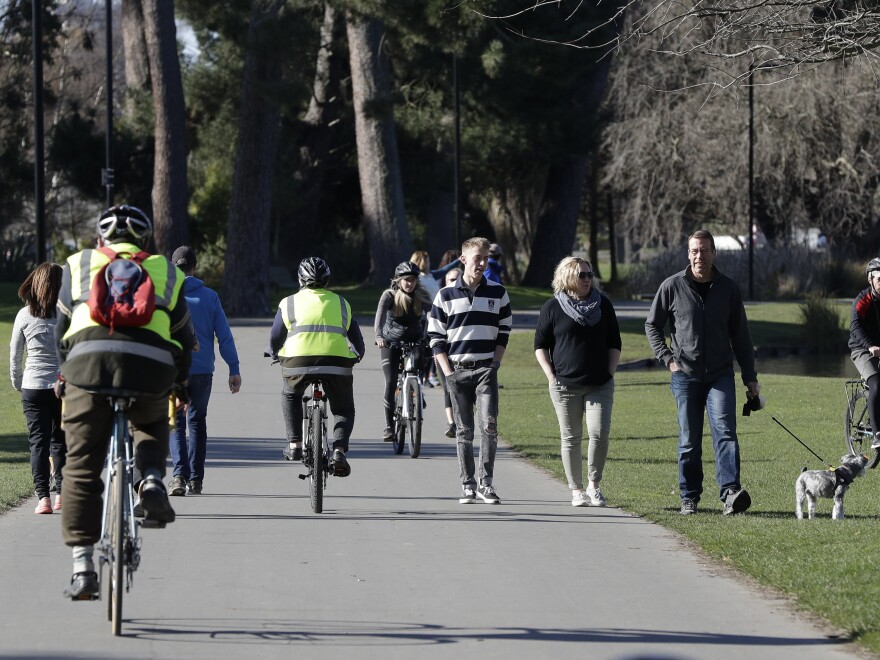Updated at 4:51 p.m. ET Tuesday
New Zealand went 101 days without any community transmission of the coronavirus, and life in the country largely returned to normal – an experience far different from the havoc that the virus is causing elsewhere in the world.
"Achieving 100 days without community transmission is a significant milestone, however, as we all know, we can't afford to be complacent," Dr. Ashley Bloomfield, New Zealand's director-general of health, said in a statement Sunday.
Indeed, on Tuesday authorities said four new cases had popped up without a clear indication of how they were spread.
Even so, the country's approach has been largely successful. Tedros Adhanom Ghebreyesus, director-general of the World Health Organization, had called New Zealand "a global exemplar" in a statement Monday.
Experts point to New Zealand's quick work in isolating any cases that emerged.
"We got on top of the clusters and isolated them before there were too many of them," epidemiologist Brian Cox at the University of Otago in Dunedin told NPR. "Once we realized it was a cluster epidemic, we worked really hard to isolate people that were infected and quarantine the rest of the people in that person's network. And we managed to achieve that for all the clusters that had developed."
Cox said, "It was a lot of hard work, and we did that at the moment we went into lockdown." By the end of the country's strict lockdown, all of those clusters had been contained.
The New Zealand Ministry of Health's daily report had become remarkably boring amid the global pandemic. Monday's report: "There are no new cases of COVID-19 to report in New Zealand today. It has been 101 days since the last case of COVID-19 was acquired locally from an unknown source. Two additional cases are reported as having recovered, so there are now 21 active cases of COVID-19 in managed isolation facilities. New Zealand's total number of confirmed cases of COVID-19 remains at 1,219."
The country's leaders continued to urge caution. The government asked people to use the NZ COVID Tracer smartphone app to log where they've been in case contact tracers need to reach them. New Zealanders were encouraged to add masks to their emergency kits in case of a future outbreak, though "there's no need to use them now," Bloomfield said in a Facebook Live discussion last week.
While the authorities were finding no new cases, Radio New Zealand's Colin Peacock said life was really quite ordinary.
"Shopping, movies, entertainment, going to bars," he said. "We can dance as close as we like to each other in nightclubs as late as we like. So everything is just fine in that regard, and business is carrying on as normal."
New Zealand's border remains closed to foreign nationals, and Kiwis returning home are forced to follow a strict 14-day quarantine.
The big difference in daily life? "That closed-down border," Peacock said, with New Zealand being an island nation in more than one sense.
NPR's Ashley Westerman contributed to this report.
Copyright 2021 NPR. To see more, visit https://www.npr.org.





